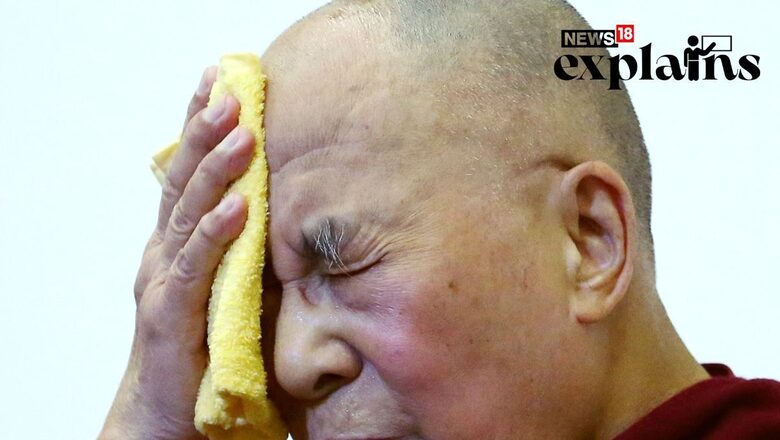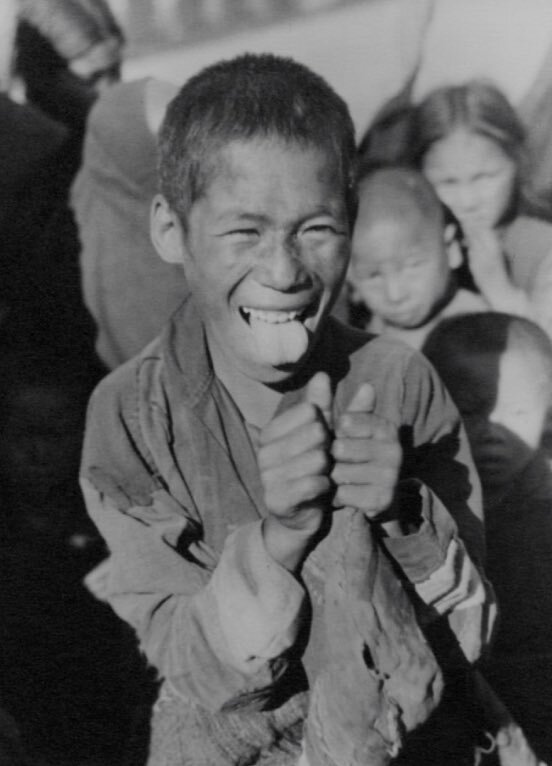
views
The Dalai Lama on Monday apologised to a boy, his family and friends for the “hurt his words may have caused”, after a video clip purportedly showing the Tibetan spiritual head asking him to suck his tongue sparked a row.
In the two-minute-five-second video, the Dalai Lama also asked the child “to look at those good human beings who create peace, and happiness and not follow those who kill other people”. Read more on this here
The statement, issued on Monday, said “A video clip has been circulating that shows a recent meeting when a young boy asked His Holiness the Dalai Lama if he could give him a hug. His Holiness wishes to apologize to the boy and his family, as well as his many friends across the world, for the hurt his words may have caused.” “His Holiness often teases people he meets in an innocent and playful way, even in public and before cameras. He regrets the incident,” it said.
What Was the Controversy?
A video of the Tibetan spiritual leader the Dalai Lama seen kissing a child on the lips and subsequently requesting the child to “suck his tongue” had sparked an outcry online.
In a widely circulated video, the Dalai Lama is shown kissing the lips of a boy who approached him to pay his respects. During the encounter, the Buddhist monk extends his tongue and requests the boy to “suck it”. The Dalai Lama can be heard asking, “Can you suck my tongue?” in the viral footage. Read more on this
While social media users largely condemned the action, while pointing to his past controversies, some said it was within Tibetan culture to stick one’s tongue out as a way of greeting.
What Does Tibetan Culture Say About the Action?
In traditional Tibetan culture, sticking out one’s tongue is a show of respect or agreement and was frequently done as a greeting, as per a report by the Institute of East Asian Studies, UC Berkeley. According to Tibetan tradition, a terrible ninth-century Tibetan ruler had a black tongue, thus people put their tongues out to demonstrate that they are not like him (and are not his reincarnation).
In the film “Seven Years in Tibet,” Brad Pitt’s character sees a group of Tibetans who all stick out their tongues at him at the same time. Although no explanation is provided, this custom has a lengthy history, as explained by an LA Times report.

Lang Darma, a wicked 9th century Tibetan monarch, was described to have a ‘black tongue’. Tibetans, who are Buddhists, believe in reincarnation and were concerned that the king might be reborn. As a result, Tibetans have greeted one another for generations by putting out their tongues, proving that they do not have black tongues, are not guilty of wicked actions, and are not avatars of the malicious king.
When Tibetans meet nowadays, they briefly stretch their tongues as a greeting. They do not extend their tongues as far or as long as depicted in the film, the report says, adding that they would never, ever stretch their tongues out as a group. Sticking out one’s tongue is used to convey agreement as well as a greeting, and in recent years, this gesture has grown into a sign of respect.
However, social media users have also pointed out that the greeting says nothing about ‘sucking’ the tongue and that the child looked uncomfortable in the clip.
Dalai Lama’s Past Controversies
During an interview with the BBC in 2019, the Dalai Lama stated that if a woman succeeds him, she should be “more attractive.” This remark infuriated people.
“If a female Dalai Lama comes, she should be more attractive,” the Dalai Lama joked to the BBC. According to the BBC, he then created a twisted face and stated that if a female Dalai Lama looked a certain way, “then people, I think, prefer not to see that face.”
When asked if this could be regarded as objectifying in comparison to a person’s intrinsic value, the Dalai Lama said, “I think both.”
In the same year, the Dalai Lama sparked outrage when he remarked of immigrants, “Europe belongs to the Europeans.” The Dalai Lama also stated that refugees should return to their home countries during a seminar in Malmo, Sweden.
“Receive them, help them, educate them… but they should eventually develop their own country,” the 83-year-old remarked of refugees. The Dalai Lama stated in August 2018 that India and Pakistan would have remained unified if Mahatma Gandhi’s ambition for Muhammad Ali Jinnah to become India’s first prime minister had come true.
The Dalai Lama went on to say that Jawaharlal Nehru’s “self-centered attitude” was the reason Muhammad Ali Jinnah was unable to be nominated Prime Minister of India.
With inputs from PTI
Read all the Latest Explainers here
















Comments
0 comment